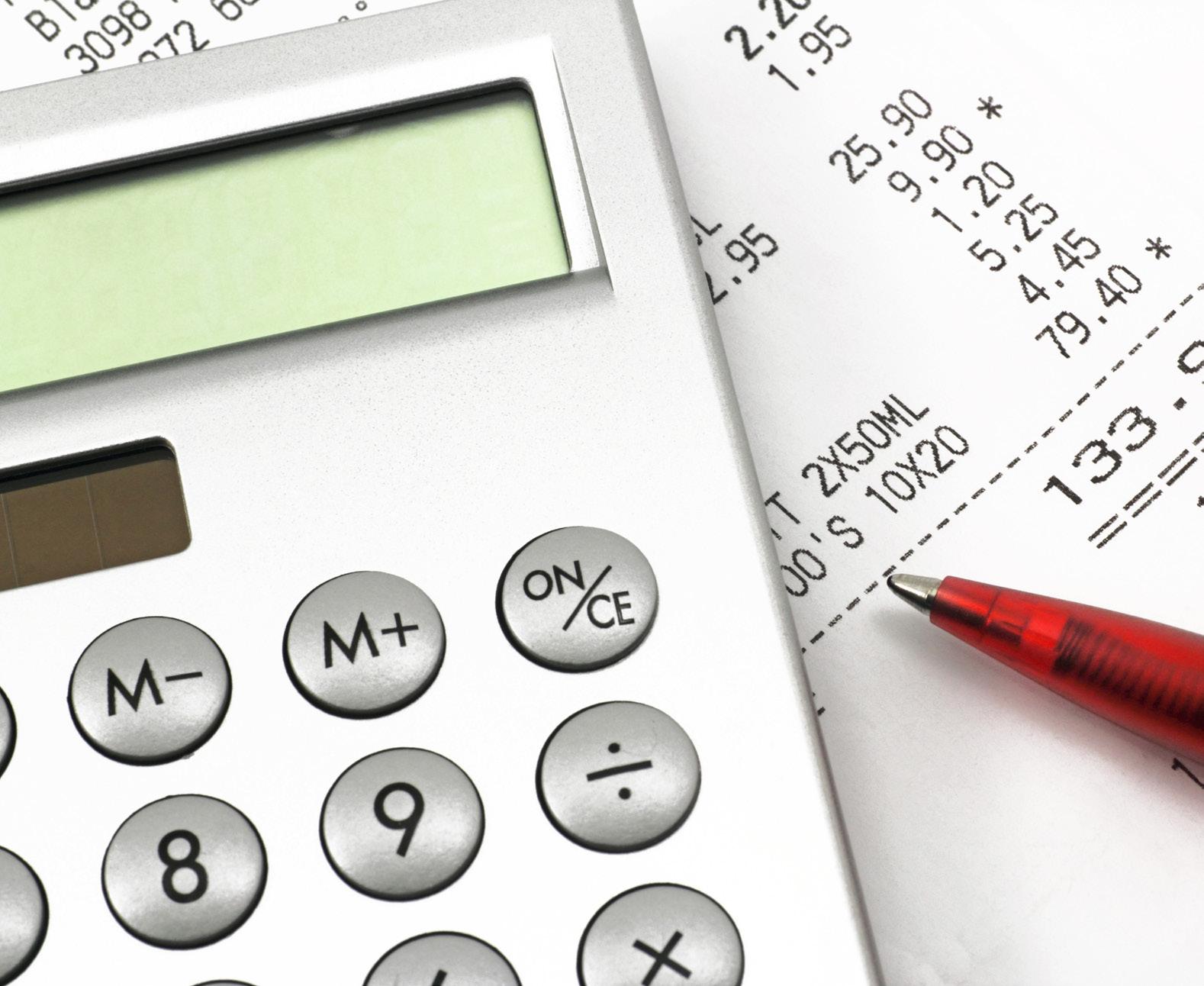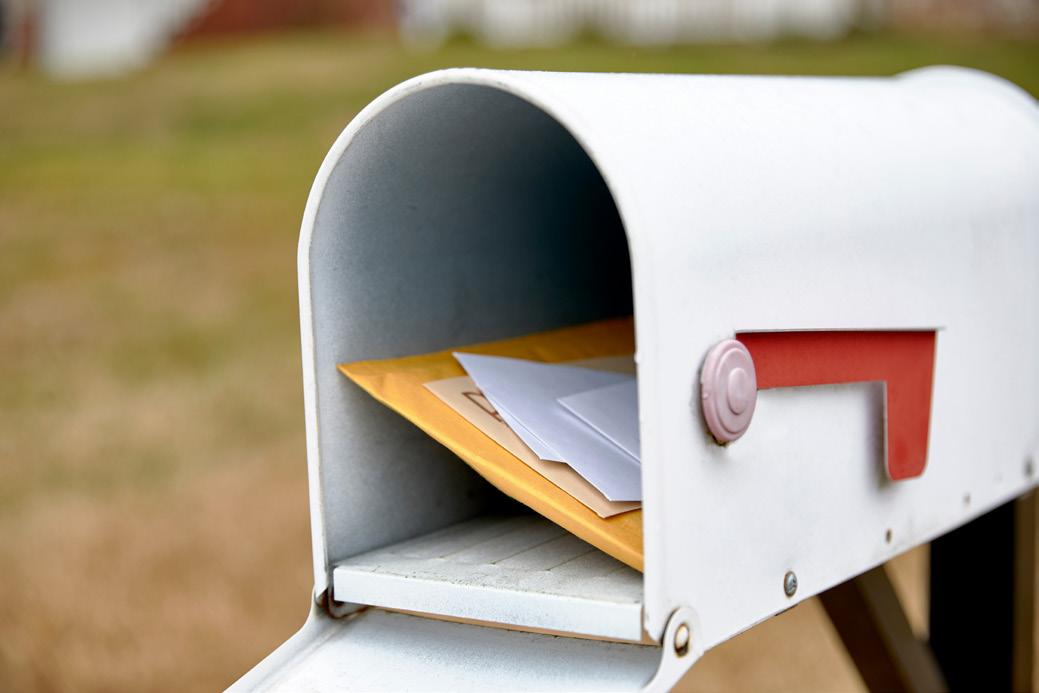home THE ROAD TO






opening doors in Cheyenne since 1984
With a limited inventory and lightning-fast market conditions, trust the experts at #1 PROPERTIES to help you find the home of your dreams! (Dog not included).
bringing Cheyenne home since 1984 (sometimes we pet dogs)

STEP 1
• Meet with a lender
• Prepare your credit
• Set a budget
STEP 2
• Discuss budget Research area neighborhoods Set wants and needs
STEP 3
• Tour homes
• Adjust criteria if necessary
STEP 4
• Research comps in the area
• Work with your realtor to set up the best offer
• Negotiations may occur
STEP 5
• All negotiations are finished
• Both parties have signed contract
STEP 6
• Professional inspects the property
• Discovers issues that may need to be worked into the purchase agreement
• Negotiate repairs
STEP 7
• Professional ensures the property is worth the loan and purchase price you agreed to pay
STEP 8
• The title company will send you a title insurance policy for the property after closing
STEP 9
• Make sure all requested docs are sent to your lender prior to closing
STEP 10
• Final walk-through
• Sign closing documents
• Receive your keys
Buying a home is one of the most significant purchases in a lifetime. It is essential to have an experienced agent in your corner, always looking out for your best interest. A buyer agent’s fiduciary responsibility is to represent the buyer and to ensure that they are protected.
After all, a seller has someone in their corner. A listing agent has an allegiance to the seller. Their goal is to get the seller top dollar for their home. There is incredible value in having someone working for YOUR best interests when buying a home.

We’ll narrow down the homes that fit your unique wants and needs and get you in the door! We look at dozens of homes each week, and can help you identify potential problems within a home.
When repairs or changes in price need to be made, we’ll be your guides and handle requesting any repairs or changes in price to the sellers.
Buying a home involves many types of documentation. We have the experience and knowledge to navigate real estate contracts, ensuring that nothing is overlooked, and that you truly understand what a paper means before ever signing on the dotted line.
A buyer’s agent will represent your best interests. With a pulse on the local market and a sound understanding of how various amenities affect the value of a home, we will make sure we submit a competitive offer on the right house for you.
We work daily in neighborhoods with inspectors, contractors, and negotiating with sellers. We have the market knowledge you need to get you the home of your dreams at the best price! Understanding the local real estate market is essential when it comes time to make an offer on a house.
I will work hard to protect all of your interests and take on any issues that may arise throughout the entire process. I work tirelessly to make sure buying a home is a fun and stress-free process.
The seller typically pays the commission for both the seller’s agent and the buyer’s agent.
Mortgage lenders recommend you do not buy a home that is more than 3 to 5 times your annual household income. If you are not purchasing a home with cash, you will need a mortgage pre-approval provided by your mortgage lender. A lender will work with you to get a loan that meets your needs. Some buyers are concerned with keeping their monthly payments as low as possible, others want to make sure that their monthly payments never increase.
A mortgage requires a good credit score. You can improve your score by:
• Paying down credit card balances
• Continuing to make payments on time
• Avoid applying for a new credit card or car loan until you have closed on your home
• Avoid making big purchases until you have closed
• Avoid job changes until you have closed
In order to make your dream of buying a home a reality, you will need to save cash for your down payment, earnest money, closing costs, and home inspector.
• A Down Payment is typically between 3.5% & 20% of the purchase price
• Earnest Money is money you put down to show you’re serious about purchasing a home. It’s also known as a good faith deposit.
• Closing Costs for the buyer run between 2% & 5% of the loan amount
• A Home Inspection costs $300 to $500


Being pre-approved, unlike being pre-qualified, means you’ve actually been approved by a lender for a specific loan amount. You will need to provide documented financial information (income, statements, assets, debt & credit reports, etc.) to be reviewed and verified by the lender.

A loan whose interest rate is periodically adjusted to more closely coincide with current interest rates.
The cost of a mortgage stated as a yearly rate, with all financing costs including interest, mortgage insurance, and loan originating fee.
The ratio of all fixed debt, including housing expenses, to gross income. Most lenders require this ratio to be at 45% or less.
A form of payment that is guaranteed to clear or settle by the company certifying the funds. Usually in the form of a certified check or cashier's check.
Properties that are similar to a subject property and are used in the appraisal process. Also referred to as comps.
A long-term loan that is standardized to meet FNMA (Fannie Mae) requirements. It has fixed monthly payments and usually has a 30-year period of fixed interest rates.
A financial arrangement whereby a neutral third-party holds funds in safekeeping pending the completion of a contract or other obligation.
A real estate sale transaction in which a specified real estate agent stands to gain a commission if a property sells within a specified number of months, no matter how a buyer is found. The purpose of an exclusive listing is to motivate the agent to
sell the property quickly and at the highest price possible.
A loan whose interest rate never changes for the life of the loan.
Combined property and liability insurance designed for residential property owners.
A form of encumbrance that holds property as security for the payment of a debt.
The highest price that a property is expected to bring under fair and normal market conditions.
Multiple Listing Service through Paragon, on which all agentlisted properties appear and syndicate to real estate websites like Zillow, homes.com, realtor.com, etc.
A fee charged for either an FHA or a private mortgage insurance policy. Also referred to as PMI.
The sum of the monthly loan service (principal and interest), plus the monthly property tax payment, homeowners insurance premium, and, when applicable, mortgage insurance premium and HOA fee. Also referred to as P&I - principal and interest.
Most home buyers find that they need to finance at least part of their home purchase. You’ll need to review your personal financial situation and make an informed estimate of your true purchasing power.
WILL DEPEND ON:
• Your income
• Your credit rating
• Your monthly expenses
• Your down payment
• Available interest rate
• Face-to-face lending
• Good Credit History
• Stable Income
• Down Payment
Generally between 5-20% of the purchase price (40% of buyers put down less than 10% – with many putting down as little as 3%)
• Impartial 3rd-Party Appraisal
Your lender needs this to verify the value of the house you want to purchase
• Income Verification & Asset Documentation
See the next page for a checklist of necessary loan documents

1. 2. 3. 4. 5.
FIND OUT YOUR CURRENT CREDIT HISTORY AND SCORE
You don’t want to start out with any surprises.
See the next page for a checklist of necessary loan documents.
They can help you develop a spending plan and determine how much you can afford.
Review your income, expenses, and financial goals to determine the type and amount of mortgage you qualify for.
Getting a pre-approved letter for your mortgage provides an estimate of what you might be able to borrow (provided your financial status doesn’t change) and demonstrates to home sellers that you are a serious buyer.

W2s from the past 2 years
3 months’ worth of pay stubs
Bank statements (past 3 months)
Previous 2 years of tax returns
List of your debts & assets
Legible copy of Driver’s License
Proof of Self-Employment
Two years Schedule C, Balance Sheet and P/L Statement
Evidence of Other Income
Rental Income, child support, alimony, etc.
Most Recent Assets Statement
401K’s, IRA, life insurance, etc.
Brief Letter of Explanantion for any Non-Payroll Deposits
Gift letters from family, etc.
Other Consumer Debt
Student loans, credit card debt, etc.
Mortgage Statements for Other Properties Owned
Homeowners Insurance Quote
Divorce decree
Additional income documents*
Plus, evidence of insurance and rental agreements (if applicable) for each property
DD 214 Form
If applying for a VA Loan

W-2 Income/Salary
Income from part-time jobs
Income from a second job
Overtime & Bonuses
Seasonal jobs
Self-employed income
Alimony & child support
(Documentation required)
Income from the lottery
Gambling
Unemployment pay
Single bonuses
Non-occupying co-signer income
Unverifiable income
Income from rental properties

Money paid towards rent is money that you will never see again. However, when you are paying a mortgage, you are building equity in your home that you can use for your future. Home equity is typically homeowners most valuable asset. Plus, you can continue to build your equity over time as your property value increases and your debt decreases.
Equity is the amount of your home that you actually own. For example, if your home is worth $250,000 and you owe $100,000 on your mortgage, you have $150,000 of equity in your home. This is the value you can do something with.
Equity is an asset, so it’s part of your total net worth. There are several ways to put that asset to work for you including buying your next home, borrowing against your equity, or funding your retirement.
One of the biggest reasons people don’t buy a home is because they think they need a 20% down payment. Today, you can buy a home with as little as 3.5% down and sometimes you can find programs that will let you put 0% down to buy a home.
Being able to buy a home for only a few thousand dollars is incredible. There are several caveats to putting down less than 20% when buying a home, one of those is mortgage insurance. Buyers should not be afraid of mortgage insurance, in fact, they should embrace it. Mortgage insurance is a fair trade-off for the borrower and lender. The borrower can buy a home with less than 20% and the lender is reducing their risk by charging mortgage insurance.
From mortgage interest to closing cost write-offs, the world of homeownership is one of the best ways to create financial freedom. You can also write-off any points you paid on your home loan.
When it comes time to sell down the road you can also avoid a capital gains tax if you’ve lived in the home for two of the last five years. Depending on your real estate investment strategy this could mean tens of thousands of dollars in savings. Keep in mind that you should always consult with an expert when formulating your own tax strategies.

When you’ve found a home that you want to own, it’s time to make an offer. Your #1 buyer’s agent will produce the necessary documents and present your offering price and any contingencies, to the seller.
• Purchase price?
• If you are asking the seller to pay closing costs, how much?
• Amount you are asking the seller to pay for repairs?
• Closing and possession date?
• Amount of money you are giving for earnest money?
You’ll want to review this document carefully and make sure it states your terms exactly. Your #1 buyer’s agent will go over the offer with you and answer any questions or concerns that you may have. If the offer is accepted by the seller, the contract will become a legally binding agreement. In addition to an offer contract, you will need to provide earnest money, as well as a letter from your lender indicating your qualification to purchase.
....is simply a “good faith” deposit showing that you are serious about purchasing the home. Earnest money typically equals between 1% and 3% of the property purchase price or less. You will not be at risk of losing your earnest money as long as you do not default on your contract. The amount will be credited back to you at closing. Your #1 buyer’s agent can tell you when, where, and how to deliver earnest money.
• Accept your offer
• Reject your offer
• Execute a counter offer
• TYPICAL COUNTER OFF ERS INCLUDE (BUT ARE NOT LIMITED TO):
• Purchase price
• Closing date
• Possession date
• Inclusions
When you make an offer on a house, you should be prepared for the negotiations to possibly go back and forth several times before both parties agree to the terms. You might also have to compete with other interested buyers in certain market conditions. When an agreement is reached on all issues, and both the seller and you – as the buyer – have signed the offer, you are both under a legally binding contract.
Make sure that you deliver the earnest money in the format and time-line agreed upon in your sales contract.
Choose your inspector(s) and get them scheduled ASAP to determine if any repairs are needed.
Let your lender know that you are under contract and make sure to get them all the requested documentation on time.
Be sure to review the title commitment once you receive it from the title company.
The appraisal should be ordered as soon as you have performed your inspections and resolved any issues.
Choose your home owners insurance provider and provide the relevant information to the title company and your lender.
Schedule all of your utilities to be transfered or turned on before closing.
Schedule your closing early on to make sure the title company has a convenient time slot open.
Before closing, do one final walk-through to make sure that everything is ready for closing.
Bring your photo ID and certified funds (if applicable) to closing. Be sure to be on time!
A home inspection is an objective visual examination of the physical structure and systems of a house, from the roof to the foundation.
The standard home inspector’s report will cover the condition of the home’s heating system; central air conditioning system; interior plumbing and electrical systems; the roof, attic and visible insulation; walls, ceilings, floors, windows and doors; the foundation, basement and structural components.
Buying a home could be the largest single investment you will ever make. To minimize unpleasant surprises and unexpected difficulties, you’ll want to learn as much as you can about the existing house before you buy it. A home inspection may identify the need for major repairs, as well as the need for maintenance to keep it in good shape. After the inspection, you will know more about the house, which will allow you to make decisions with confidence. If you are planning to sell your home, a home inspection can give you the opportunity to make repairs that will put the house in better selling condition.
The inspection fee for a typical single-family house varies depending on a number of factors such as the size of the house, its age and possible optional services such as septic, well or radon testing.
Do not let cost be a factor in deciding whether or not to have a home inspection or in the selection of your home inspector. The sense of security and knowledge gained from an inspection is well worth the cost, and the lowestpriced inspection is not necessarily a bargain. Use the inspector’s qualifications, including experience, training, and professional affiliations as a guide.
Even the most experienced homeowner lacks the knowledge and expertise of a professional home inspector. An inspector is familiar with the elements of home construction, proper installation, maintenance and home safety. He or she knows how the home’s systems and components are intended to function together, as well as why they fail.
Above all, most buyers find it difficult to remain completely objective and unemotional about the house they really want, and this may have an effect on their judgment. For accurate information, it is best to obtain an impartial, third-party opinion by a professional in the field of home inspection.
No. A professional home inspection is an examination of the current condition of a house. It is not an appraisal, which determines market value. It is not a municipal inspection, which verifies local code compliance. A home inspector, therefore, will not pass or fail a house, but rather describe its physical condition and indicate what components and systems may need major repair or replacement.
Your #1 buyer’s agent can provide you with a list of names from which to choose. You can also ask friends or business acquaintances to recommend a home inspector they have used.
Typically, a home inspector is contacted immediately after the contract or purchase agreement has been signed. Before you sign, be sure there is an inspection clause in the sales contract, making your final purchase obligation contingent on the findings of a professional home inspection. This clause should specify the terms and conditions to which both the buyer and seller are obligated.
While it’s not required that you be present for the inspection, it is highly recommended. You will be able to observe the inspector and ask questions as you learn about the condition of the home and how to maintain it.
No house is perfect. If the inspector identifies problems, it doesn’t mean you should or shouldn’t buy the house, only that you will know in advance what to expect. If your budget is tight, or if you don’t want to become involved in future repair work, this information will be important to you. If major problems are found, a seller may agree to make repairs.
Definitely. Now you can complete your home purchase with confidence. You’ll have learned many things about your new home from the inspector’s written report, and will have that information for future reference.
BLACK HILLS ENERGY (888) 890-5554 blackhillsenergy.com
HIGH WEST ENERGY (307) 245-3261 highwestenergy.com
WYOMING DISPOSAL SYSTEMS (307) 635-7168 wyodisposal.com
COWBOY SANITATION (307) 214-1764
FLYTE SANITATION (307) 635-0184
Spectrum (833) 267-6097 spectrum.com
DIRECTV (855) 842-4388 directv.com
Dish Network (855) 364-4929 dish.com
Don’t forget to schedule all of your utilities to be transferred or turned on before closing. Also, if you’ve got children in school, be sure to visit the appropriate Laramie County School District website.
Don’t forget to ask about garbage pick-up & watering days. BOARD OF PUBLIC UTILITIES (307) 637-6460 cheyennecity.org
SOUTH CHEYENNE WATER & SEWER (307) 635-5608
WINCHESTER HILLS UTILITY (307) 634-3161
CENTURY LINK (855) 340-3308 centurylink.com
UNITED STATES POSTAL SERVICE
1-800-ASK-USPS (275-8777) usps.com (change of address form available here)
Bluepeak (888) 975-4258 mybluepeak.com CABLE/INTERNET/SATELLITE COMPANY LCSD
Rise Broadband (888) 990-7331 risebroadband.com
Viasat (855) 447-9466 viasat.com
Hughesnet (844) 406-1664 hughesnet.com
Mountain West (307) 637-2854 millect.com
Visionary (888) 682-1884 vcn.com
Post Office: set up forwarding address
Employer: paychecks, tax forms, etc.
Bank/Credit Union
Loan Issuers
Credit Cards
Financial Aid
Investments
Gas Water Power
Internet/Cable/Phone
Garbage
Cell Phone
Lawn Care
Cleaning Service
PEOPLE
Doctor
Dentist
Children’s Physician
Veterinarian
Lawyer
Babysitter
ONLINE SERVICES
Shopping (Amazon, etc.)
Streaming Services
Mapping Services (Google Maps, etc.)
PETS
Veterinary Office
Pet Sitter / Boarding/Daycare
Microchip service
Retail Clubs (Costco, SAM’s, etc)
Churches
Scouts/Youth Organizations
Parent Teacher Associations
Magazine
Subscription Boxes
Department of Motor Vehicles
Internal Revenue Service
Voter Registration
Social Security
Citizenship & Immigration Services
Department of Veteran Affairs
Ask your #1 Properties REALTOR® for complimentary change of address cards

